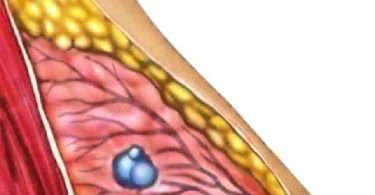SYMPTOM MANAGEMENT: what symptoms occur when ovarian cancer progresses ?
What happens if I have severe abdominal pain? What can I do for fatigue ?
WHAT SYMPTOMS OCCUR WHEN OVARIAN CANCER PROGRASSES ?
Peritoneal cavity the abdominal space : Ovarian cancer usually grows in the belly , or peritoneal cavity .As tumor implants lying on the peritoneum and around the bowels continue to grow , more malignant fluid (ascites) is produced .The combination of cancer growth and ascites will cause the symptom of bloating :eventually , the volume of tumour inside the abdomen will press on the small and large intestine , causing difficulty with eating .Eventually , these effects may require a hospital admission to administer fluids by vein and bring about temporary relief of the symptoms. Occasionally the disease may spread through the blood vessels or lymph nodes and show up in the lungs or liver .If it lands in the lung cavity , the cancer can cause the fluid to develop around the lung (pleural effusion ) which can cause chest pain and difficulty in breathing , rarely , patients can present with cancer in their brain ,and that can produce changes in personality , decreased ability to think clearly (cognitive changes ), or seizures
WHAT HAPPENS IF I HAVE SEVERE ABDOMINAL PAIN ?
If you develop severe abdominal pain , it is very important that you immediately consult with your physician or seek care in an emergency room to find a reason for your pain and specifically to rule out an intestinal obstruction .The evaluation will require a physical examination and imaging studies , usually abdominal x-rays and a CT (computed tomography ) scan of your abdomen and pelvis .Intestinal obstruction , a very common complication of advanced or recurrent ovarian cancer , may require surgery . If your physician believes that you might have obstruction , you will have to go to hospital.your doctor may recommend surgery to correct the obstruction . if your pain is severe , you may require morphine or another type of narcotic , which may be offered to you as an infusion pump that allows you to control directly the amount of pain medication you get (patient –controlled analgesia ) . It is important to realize that abdominal pain does not automatically mean that you have an obstruction. There are other possible causes for pain , and most of them can be managed without having to admit you to the hospital . some common cauges are constipation , kidney stones , or a urinary tract infection .
however , an obstruction may become an emergency , and then it requires immediate evaluation to rule it out WHAT CAN I DO FOR CONSTIPATION ? :
Constipation is a very common complaint for women with ovarian cancer . It is typically present at diagnosis and can persist through out treatments and recurrence . Because ovarian cancer tends to grow along the surface of your bowels , the normal function of the bowel is affectedwhich results in constipation. You may require the use of laxatives and stool softeners ,such as senna and colace. If constipation is related to pain medications or progression of your cancer ,
these may not work enough .There are other medications your doctor may recommend , including lactose, magnesium citrate , and enemas , to help with bowel movements.
HOW DO I MANAGE MY PAIN ?
A primary goal of any one involved in the treatment of cancer patients is to alleviate pain . It is always important for your doctor to perform a history of the pain , exam, and diagnostic studies to determine the source of your pain . If it is related to your cancer often it is relieved as the cancer shrinks with chemotherapy .however , the use of narcotics is often essential to help with pain . If your doctor is unsure how to dose your pain medication or if the pain is not being controlled accurately , there are now specialists in pain management that you can see . if the pain is found to be due to a specific site of cancer that is pressing on neres , your doctor may even recommend rariation to help relieve the pain.
WHAT CAN I DO FOR FATIGUE ?
Fatigue is a common side effect of chemotherapy , and of the cancer itself . many women find their own personal way of coping with it . if you are found to be anemic , often using medications like Epogen will help by increasing your red cell count , which may help . If you are in chemotherapy , drinking fluids may help by preventing dehydration . try not to restrict your self solely to water ;use fluids rich in metabolites to replenish important electrolytes that may be lost as your body copes with the chemotherapy . Fatigue may also be a side effect of medications , like anti nausea agents and pain medications .If this is happening to you , talk to your doctor about alternatives that may be available but not cause as much tiredness .Finally , try your best to say active , even though it may be difficult at first .you may find it becomes easier with time.
HOW IS ASCITES TREATED ? WHAT ABOUT PLEURAL EFFUSIONS?
If you have a large volume ascites when you are first diagnosed , your surgeon will drain the fluid during the primary surgery , removing several litres during the initial operation.This is part of the debulking (resecting or removal) .The majority of patients with new ovarian cancer (70—80 %)will respond to chemotherapy , and chemotherapy will usually prevent reaccumulation of ascites . If the cancer does not respond to initial chemotherapy or returns after some time and starts to grow once more , your belly may fill up with ascites again .I n that event , doctors use other types of chemotherapy to get control of your cancer ,which is primary way to control the ascites. Often to control of your cancer , which is the primary way to control the ascites .Often to control abdominal swelling your physician may repeatedly drain the ascites using a needle through your abdominal skin (a procedure known as paracentesis) .If the swelling is severe , it cause you to feel full easily when you eat (termed early satiety )and uncomfortable when you lie down or even may make breathing difficult. Paracentisis is not the same thing as surgery .it’s usually something that can be carried out at your bed side or with you as an out patient . Some
times , if the fluid in an area that’s difficult to reach , your doctor may have to perform the procedure in the radiology department :that way , the radiologist can see where the needle is going into your body and may more accurately drain off the fluid . unfortunately , although , the procedure can relieve you of the symptoms associated with associated with ascities , it’s is usually temporary ; most patients may have to under go paracentesis once a month or more frequently if the cancer does not respond quickly to chemotherapy .Fluid build up around your lungs is called a pleural effusion . Some times the fluid deposit can become so large that it compresses your lung . which can then is unable to work properly .This can cause shortness of breath (dyspnea) that is worse when you walk :if it is very severe , it can cause you to be breathless at rest or when you are lying down . If the fluid starts to interfere with your ability to go about your daily routine without feeling uncomfortable or breathless , your doctor may this a process is called a thoracentesis) this procedure is similar to the paracentesis .Your doctor would place a needle into your chest cavity and drain the fluid . As will ascites , the fluid likely will return despite bejng drained . Therefore , to increase the odds that it will not come back, treating it may require something more permanent . once all the fluid is removed , a drug such as talc is placed into the lung space (pleurodesis ) .This agent (drug ) prevents further fluid from building up by creating scarring in the space between the chest wall and the lung (which is where the fluid builds up ).
RELAPSE OF OVARIAN CANCER:
How can my ovarian cancer come back , if my ovaries have already been removed ?
Ovarian cancer cells can escape outside the ovary and be present in many parts of the pelvic and abdominal cavity , particularly in the lining of the peritoneum . They can hide in lymph nodes in any part of your body , pr can even show up as microscopic cells in your lung, liver, bone and brain . removal of the ovaries will ensure that the original site of cancer is removed , but it does not guarantee that the cancer will not show up elsewhere in your body . At the time of diagnosis , you may have a small but undetectable volume of cancer cells floating through out your peritoneum and entire body ; if not treated , these cells may grow and eventually present as a tumour recurrence . This is why most patients with ovarian cancer should receive post surgical (or adluvant ) chemotherapy after surgery . it’s a way to secure the destruction of any potential “microscopic metastasis “ that may have escaped the ovaries .
What happens if the cancer comes back ?
If ovarian cancer recurs , your treatment will depend on where the cancer is found and the length of the interval away from chemotherapy (also known as treatment free interval or TFI) the TFI is usually measured from the date of the last chemotherapy treatment after your initial surgery to the date of recurrence. In general , if your cancer comes back and requires treatment with another round of chemotherapy with in 6 months (after you completed the prior treatment ) , it is considered unlikely to respond to another round of platinum based chemotherapy, sometimes referred to as platinum resistance . your oncologist will generally offer you other chemotherapy drugs that work in a different way , so called second line chemotherapy .
although a repeat surgical procedure may be a possibility , the benefit appears to be in those patients whose TFI is greater than 1 year . patients whose disease returns after a short time will generally not do as well as those who have a recurrence after a year or more . If ovarian cancer recurs more than 6 months after you complete your chemotherapy , treatment will be based on where the cancer has reappeared and on your TFI. If the cancer has come back in only one area , surgical removal of the recurrent tumour followed by additional chemotherapy or (in some instances) radiation may be be a good option . alternatively , your oncologist may recommend that you undergo chemotherapy and not surgery , with the goal of having it to go into a second remission. Occasionally, recurrent ovarian cancer can be cured with a combination of multy modality treatment that invoves surgery, chemotherapy and even radiation.
WHAT TO I DO IF THE CA-125 READING STARTS TO RISE AGAIN ?
First don’t panic . fluctuations of the CA_125 are usual and, because of this , your physician may not be too concerned about a rise , as long as the reading stays with in the normal range (in most laboratories below 35 ). If the CA_125 reading starts to rise but stays in the normal range , it calls for careful observation . this means that your physician may bring you in on a monthly basis as opposed to every 3 months in order to track your marker more closely . If it starts to rise above normal it is very important to have the CA-125 repeated and confirmed .
Homoeopathic treatment / medicines : Ovaries Cancer :- Lachesis , Kreosote, ars.alb, aurum mur, nat mur, are chief remedies . Belladonna calcarea; sepia; lyco, apis , and iodium , are use full for right ovary . for left ovary , lachesis, lillium , kali carb, stramonium , and naja are indicated . conium has been useful in chronic cases . In chronic cases in hardness of ovaries , apis mellifica , when there is stinging pain mostly on the right side , urine scanty , no thirst lachesis; for left sided pain when even the touch of clothes is unbearable , belt is not bearable . Thuja ; for hardness of the left side , chronic cases the patient feels better on hot fomentation , aur.mur.platina , graphites , pulsatilla , colocynthis , ferrum phos, should also be consulted .Apis mel; for right sided dropsy , when there is stinging pain , fluid collects in ovary , it is swollen and some times pus is also formed . Iodium : for the right ovary when there is a bearing down feeling , pain and collection of fluid under ovaries , this may be tried .





